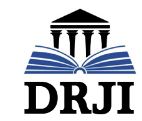EMPOWERMENT OF MADRASAH COMMITTEES IN IMPROVING MANAGERIAL PERFORMANCE ISLAMIC JUNIOR HIGH SCHOOL MIFTAHUSSALAM MEDAN
Abstract
Full Text:
PDFReferences
Al Rashidin. (Ed). 2006. Personality and Education , Citapustaka Media: Bandung
Bafadal, Ibrahim. 2003. Management of Quality Improvement of Elementary Schools , Jakarta: Bumi Aksara.
Bryan, J., & Henry, L. 2012. A M odel for B uilding S chool- F amily- C ommunity P artnerships: Principles and P rocess . Journal of Counseling & Development, 90 (4).
Dye, Thomas, R & Zeigler, Harmon. 1997. The Irony of Democracy. Pasific Grove, CA: Cole Publishing.
Epstein, J. 1995. School/family/community partnerships: Caring for the children we share. Phi Delta Kappan, 72(5).
Fattah, Nanang. 2000. Manajemen Berbasis Sekolah, Andira: Bandung.
Hasbullah, 2007, Education Autonomy, Regional Autonomy Policies and Their Implications for the Implementation of Education , Jakarta: Raja Grafindo Persada,
Kriswantono, M., & Muhyadi, M. 2013. Implementasi Peran Komite Sekolah di SD Negeri Sumberporong 03 Kecamatan Lawang, Kabupaten Malang. Jurnal Akuntabilitas Manajemen Pendidikan, 1(1). Retrieved fromhttp://journal.uny.ac.id/index.php/ jamp/article/view/2325/1928.
Kemendikbud. 2016. Kemitraan Sekolah dengan Keluarga dan Masyarakat. Jakarta: Direktorat Jendral pendidikan Anak Usia Dini dan Pendidikan Masyarakat.
Karhi Nisjar dan Winardi. 1997. Manajemen Stratejik, Bandung:Mandar Maju.
Lateiner, A. 1983. The Techneques Of Supervition. Translation: Iman Sudjono, Jakarta: New Script.
Lewis, PV1987. Organizational Communication. New York: John Willey & Sons .
Matete, R. 2016. Teaching Professionalism in an Accountability Age in Tanzania. International Journal of Science and Technology Vol.5 No. 2.
Onny S. Prijono dan A.M.W. Pranarka,. 1996. Pemberdayaan: Konsep, Kebijakan dan Implementasi. Jakarta: Centre for Strategic and International Studies.
Pantjastuti, Sri Renani et al. 2008. School Committee; History and Prospects in the Future , Yogyakarta: Hikayat Publishing
Reeser, C. 1973. Management Function and Modern Concepts. Illionis: Scoot Foresman and Company.
Satori, Dj. At.al 2001. Pedoman Implementasi Manajemen Berbasis Sekolah di Jawa Barat: Dewan Sekolah. Bandung: Dinas Pendidikan Jawa Barat.
Sagala, Syaiful. 2009. Professional Capabilities of Teachers and Education Personnel . Bandung: Alfabeta.
Santoso, Agus Budi. 2007. The Role of the School Committee in Improving the Quality of Basic Education in Madiun City . Thesis is not published by FBS IKIP PGRI Madiun.
Stewart, Aileen Mitchell.1998. Empowering People Pemberdayaan Sumber Daya Manusia. Yogyakarta : Kanisius
Sutisna, Oteng. 1985. Administrasi Pendidikan: Dasar Teoritis Untuk Praktek Profesional. Bandung: Angkasa.
Wrihatnolo, R R, Dwidjowijoto ,R N. 2007. Manajemen Pemberdayaan, Jakarta: Elek Media Komputindo
W. Bennis dan M. Mische. 1995. The 21 st Century Organization: Reinventing Through Reengineering, San Diego: Pfeiffer & Company.
DOI: https://doi.org/10.46576/ijsseh.v1i4.1425
Article Metrics
Abstract view : 411 timesPDF – 288 times
Refbacks
- There are currently no refbacks.
Copyright (c) 2021 Dharmawangsa: International Journal of the Social Sciences, Education and Humanitis
Dharmawangsa International Journal Indexed by:
Member Of :
Dharmawangsa: International Journal of the Social Sciences, Education and Humanitis Published By:
UNIVERSITAS DHARMAWANGSA
Alamat : Jl. K. L. Yos Sudarso No. 224 Medan
Kontak : Tel. 061 6635682 - 6613783 Fax. 061 6615190
Email : dharmawangsajournal@dharmawangsa.ac.id
Dharmawangsa:International Journal of the Social Sciences, Education and Humanitis by Universitas Dharmawangsa Medan is licensed under a Creative Commons Attribution-NonCommercial-ShareAlike 4.0 International License.
Based on a work at: https://jurnal.dharmawangsa.ac.id/index.php/dharmawangsa/index

11.jpg)
















